Rogue Blades Entertainment Announces Winners of Challenge! Discovery 2010 Contest
 Back in May Rogue Blades Entertainment, publishers of Rage of the Behemoth, Demons, Return of the Sword and other excellent fantasy anthologies, announced the first annual Challenge! writing contest. Open to fiction in a wide variety of genres (“Sword & Sorcery, Sword & Planet, Soul & Sandal, Western, Mystery, Dark Fantasy” and others), the Challenge! Discovery contest invited authors to submit works directly inspired by a single piece of art by V Shane, pictured at right.
Back in May Rogue Blades Entertainment, publishers of Rage of the Behemoth, Demons, Return of the Sword and other excellent fantasy anthologies, announced the first annual Challenge! writing contest. Open to fiction in a wide variety of genres (“Sword & Sorcery, Sword & Planet, Soul & Sandal, Western, Mystery, Dark Fantasy” and others), the Challenge! Discovery contest invited authors to submit works directly inspired by a single piece of art by V Shane, pictured at right.
The winners of the Challenge! Discovery 2010 writinng contest are (in no particular order):
“A Fire in Shandria” ~ Frederic S. Durbin
“In the Ruins of the Panther People” ~ Daniel R. Robichaud
“The Serpent’s Root” ~ David J. West
“Fire Eye Gem” ~ Richard Berrigan Jr.
2nd PLACE: “Cat’s in the Cradle” ~ Nicholas Ozment
“Some Place Cool and Dark” ~ Frederic S. Durbin
“The Ash-Wood of Celestial Flame” ~ Gabe Dybing
“Witch with Bronze Teeth” ~ Keith J. Taylor
“Inner Nature” ~ John Kilian
1st PLACE: “Attabeira” ~ Henrik Ramsager
Honorable mentions go to Eric Magliozzi for “Songs of the Dead,” and Michael Navarro for “The Golden Maiden.”
The winning entries will be collected in the Challenge! Discovery anthology, to be published by Rogue Blades Entertainment around Christmas this year. More information on the contest results and the upcoming book is here.
Congratulations to all the winners! I’m looking forward to reading the stories.
 Hi! My name’s Amal! We’ve never met. Well, unless we have. But most likely we haven’t, because I’ve never blogged here before, even though Ms. Claire Rides-the-Lightning Cooney has
Hi! My name’s Amal! We’ve never met. Well, unless we have. But most likely we haven’t, because I’ve never blogged here before, even though Ms. Claire Rides-the-Lightning Cooney has 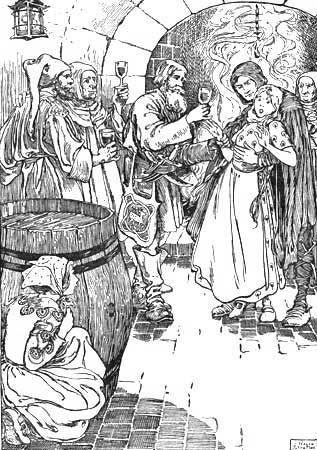 (I passed the 50,000-word mark in
(I passed the 50,000-word mark in 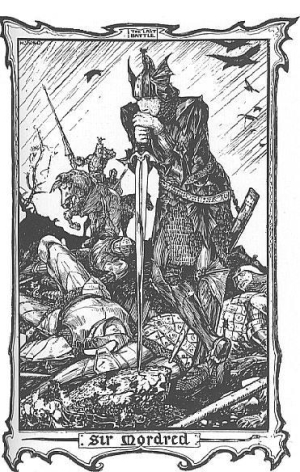
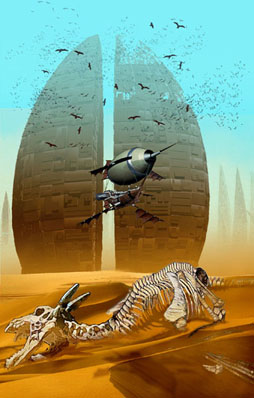
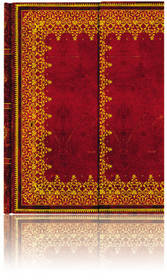 Several weeks ago I waxed on about
Several weeks ago I waxed on about 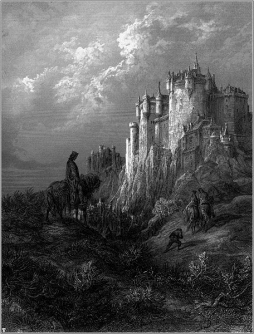
 A few years ago, I lived and worked in Edgewater, a northerly Chicago neighborhood just blocks from fantasy writer Ysabeau Wilce’s house. She once confessed to having walked her dog past my bookstore on Broadway and Bryn Mawr. The unutterable excitement!
A few years ago, I lived and worked in Edgewater, a northerly Chicago neighborhood just blocks from fantasy writer Ysabeau Wilce’s house. She once confessed to having walked her dog past my bookstore on Broadway and Bryn Mawr. The unutterable excitement!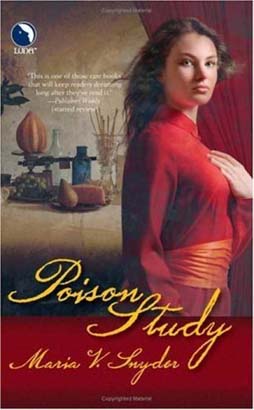 Five years ago, my first novel, Poison Study was published. It came out in hardback with a beautiful red and gold cover that was loosely based on Vermeer’s painting The Girl with the Pearl Earring.
Five years ago, my first novel, Poison Study was published. It came out in hardback with a beautiful red and gold cover that was loosely based on Vermeer’s painting The Girl with the Pearl Earring.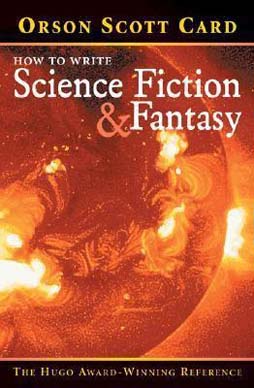 Back in 1995, I’m reading Orson Scott Card’s How to Write Science Fiction and Fantasy – because I had written a bunch of short stories that were all soundly rejected and I was thinking perhaps I needed a few pointers (no comments on still having my short stories rejected).
Back in 1995, I’m reading Orson Scott Card’s How to Write Science Fiction and Fantasy – because I had written a bunch of short stories that were all soundly rejected and I was thinking perhaps I needed a few pointers (no comments on still having my short stories rejected).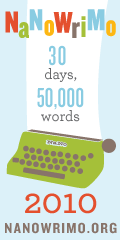 Tonight, children go trick-or-treating, and many adults go to Halloween parties, thereby, perhaps, proving Ogden Nash’s line that children get more joy out of childhood than adults get out of adultery. For myself, though, I’ll be counting down the minutes to midnight, scrawling notes and making plans. Because at 12 AM, November 1,
Tonight, children go trick-or-treating, and many adults go to Halloween parties, thereby, perhaps, proving Ogden Nash’s line that children get more joy out of childhood than adults get out of adultery. For myself, though, I’ll be counting down the minutes to midnight, scrawling notes and making plans. Because at 12 AM, November 1,